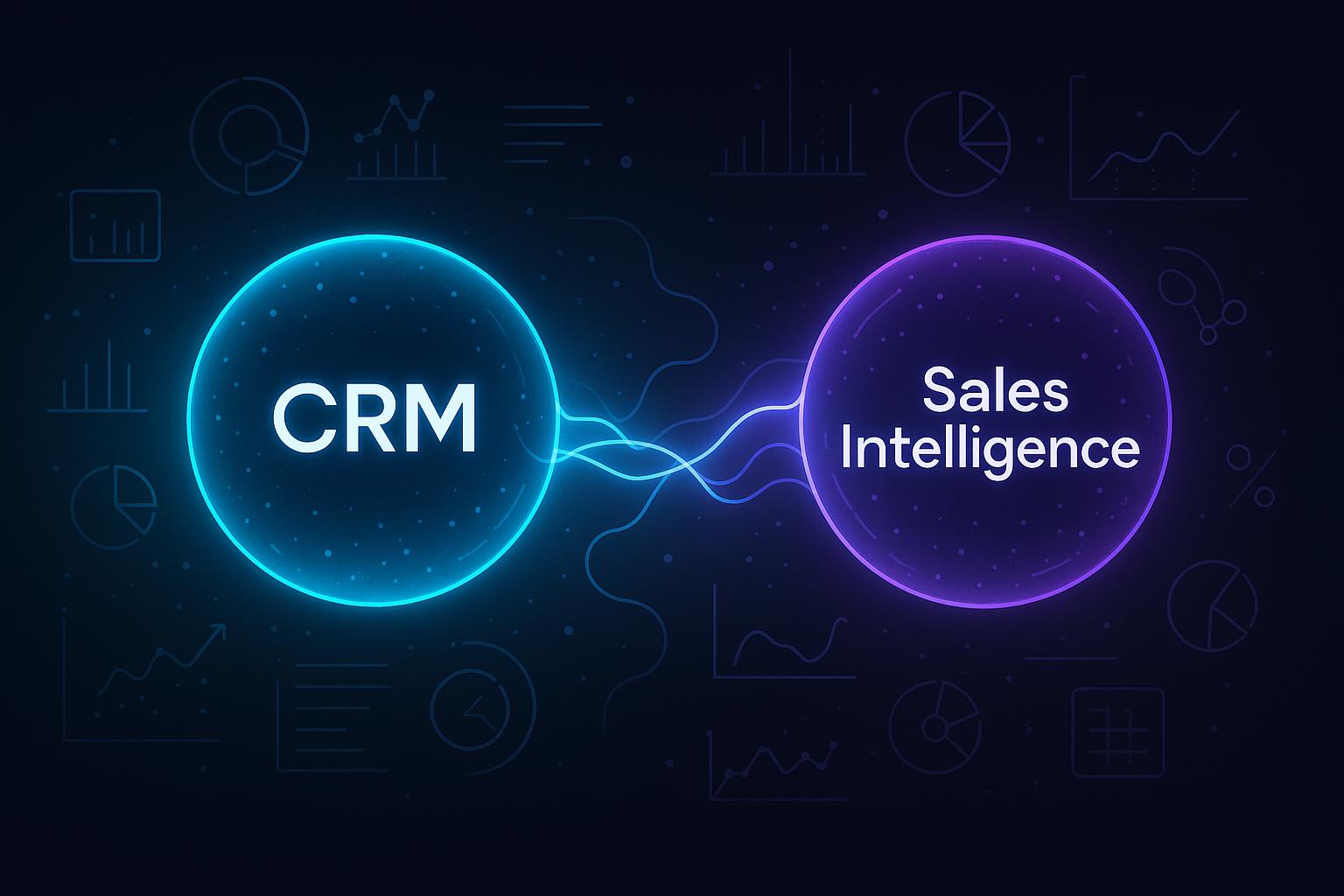Using AI for Effective Sales Coaching
Industry reports consistently show that effective coaching can improve sales team win rates significantly, yet many managers struggle to find the time for personalized guidance. Think about the last time you had a full hour dedicated solely to one rep's development. The integration of Artificial Intelligence into sales processes offers a way to bridge this gap, transforming how teams learn and perform.
The Evolution of Sales Coaching in the Digital Age
Traditional sales coaching often relies heavily on a manager's intuition and observations during ride alongs or sporadic call reviews. This approach faces inherent limitations. Feedback can be subjective, varying from one manager to another. Scaling personalized attention across a large team becomes nearly impossible, leaving many reps feeling underserved. Furthermore, coaching often reacts to lagging indicators like missed quotas, rather than proactively addressing skill gaps as they emerge.
Today’s sales environment adds another layer of complexity. Buyers are more informed, sales cycles involve more stakeholders, and interactions happen across numerous digital channels. These conditions demand a coaching approach that is more data informed and responsive. Relying solely on gut feeling or infrequent reviews is no longer sufficient to keep pace.
This is where AI enters not as a replacement for human coaches, but as a powerful augmentation tool. It addresses the core challenges of traditional methods by providing objective analysis, automating repetitive tasks, and enabling personalized guidance at scale. Integrating AI is becoming essential for effective sales team training and coaching strategies that prioritize precision and consistent development across the entire team.
Leveraging AI for Real-Time Feedback and Guidance
Imagine a sales representative navigating a complex negotiation. Instead of waiting for a post call debrief, they receive subtle, instantaneous prompts directly within their workflow. This is the power of AI applied during live sales interactions. Using technologies like natural language processing to understand conversation dynamics, AI tools can analyze sentiment, track keyword usage, and monitor talk listen ratios as the conversation unfolds.
These systems offer discreet guidance, perhaps suggesting a relevant case study when a specific objection arises or flagging excessive use of filler words. The immediacy of this real-time sales feedback offers distinct advantages:
- Immediate Course Correction: Reps can adjust their approach mid conversation, turning potential missteps into learning opportunities.
- Reinforcement of Best Practices: Good habits, like asking open ended questions or confirming next steps, are reinforced in the context of actual selling scenarios.
- Increased Rep Confidence: Knowing they have background support can bolster a representative's confidence during challenging interactions.
For managers, this technology provides aggregated insights into team performance during live interactions without requiring them to shadow every call. They can identify patterns or common sticking points much faster. This capability accelerates skill development significantly, embedding learning directly into the daily workflow rather than isolating it to separate training sessions.
Developing Personalized Training Plans with AI
Moving beyond immediate feedback, AI fundamentally changes how long term development plans are created and managed. Traditional training often involves standardized modules assigned to everyone, regardless of individual needs. Think of the generic onboarding curriculum or the annual skills workshop. While foundational, this approach lacks the specificity needed for targeted improvement. Personalized sales coaching powered by AI offers a far more precise alternative.
Identifying Individual Skill Gaps
AI systems analyze a vast array of data points far beyond what a manager could manually track. This includes call recordings, CRM activity, email communications, and sales outcomes. By correlating specific behaviors with performance results, AI objectively pinpoints where each representative excels and where they struggle. It might identify that one rep consistently rushes discovery calls, while another struggles with articulating value propositions for a specific product line. This granular insight moves beyond surface level observations.
Automating Training Recommendations
Based on these identified gaps, AI platforms can automatically suggest relevant training resources. Instead of a manager manually searching for the right article or video, the system recommends targeted content. This could range from specific modules on objection handling to examples of successful negotiation tactics used by top performers within the team. This ensures training efforts are focused precisely where they will have the most impact for each individual.
Tracking Progress Dynamically
Perhaps the most significant shift is the move from static to dynamic training plans. AI continuously monitors performance data, tracking how well a representative is applying new skills and whether the training is yielding results. The plan adapts over time, introducing new challenges as skills improve or refocusing efforts if progress stalls. This creates a continuous development cycle tailored to each person's journey. This level of personalization is easily scalable using AI for sales teams, allowing managers to oversee tailored development for everyone.
Comparison of Training Plan Approaches
| Feature | Traditional Training Plans | AI-Personalized Training Plans |
|---|---|---|
| Basis for Plan | Generic role requirements, manager observation | Individual performance data analysis (calls, CRM, outcomes) |
| Content Delivery | Standard modules for all reps | Targeted resources based on specific skill gaps |
| Adaptability | Periodic manual reviews, often infrequent | Continuous monitoring and dynamic adjustments |
| Scalability | Difficult to personalize for large teams | Easily scalable across the entire sales force |
| Time to Competency | Variable, often longer | Potentially accelerated due to focused training |
This table contrasts the static nature of traditional sales training plans with the dynamic, data driven personalization offered by AI, highlighting differences in adaptability, scalability, and focus.
Deep Dive into Call Performance Analysis
While real time feedback assists during interactions, the post call analysis capabilities of AI offer a different, yet equally valuable, layer of insight for AI sales coaching. After calls are completed, AI tools can meticulously review recordings, providing objective and consistent scoring against predefined benchmarks. Was the value proposition clearly stated? Were key discovery questions asked? How effectively were objections handled? AI removes the inherent subjectivity that can creep into manual call reviews.
These systems excel at identifying 'winning patterns'. By analyzing thousands of calls, AI can pinpoint the specific phrases, questions, pacing, or techniques used by top performers that consistently correlate with successful outcomes. This provides concrete examples of excellence that can be shared across the team. Think of it like a sports team reviewing game film, but with AI highlighting the critical plays automatically.
Furthermore, AI can pinpoint exact moments within a recording where a representative struggled. Instead of vague feedback like "you need to handle objections better," a coach can point to a specific timestamp and discuss the precise challenge encountered. This makes feedback far more actionable. Analyzing aggregated call data also reveals team wide trends, common customer sticking points, or emerging market feedback, informing broader coaching strategies and even product development.
Enhancing Onboarding and Ramp-Up Time
Bringing new sales hires up to speed quickly and effectively is a perennial challenge. They face an onslaught of information about products, processes, and customers, often receiving inconsistent coaching depending on their manager's availability. AI offers structured ways to streamline this critical period.
Consider how AI assists new representatives:
- Delivering Consistent Foundational Training: AI platforms can deliver core product knowledge and sales methodology training uniformly, ensuring every new hire builds the same strong base.
- Providing a Best-Practice Library: New reps gain searchable access to a curated library of successful call recordings and email templates from top performers, providing practical examples from day one.
- Offering Early Performance Analysis: AI tools can analyze early calls and activities to identify skill gaps much sooner than traditional methods, allowing for timely intervention before bad habits form.
- Facilitating Practice Simulations: AI powered tools can offer realistic simulations where reps practice handling objections or delivering pitches in a safe, low stakes environment.
These functions help new hires acquire skills and build confidence more rapidly. For managers, AI takes over many repetitive aspects of onboarding, freeing their time for more strategic coaching focused on integrating the new hire into the team culture and addressing nuanced challenges. The result is a significantly optimized onboarding process, leading to faster productivity and reduced time to first sale.
Integrating AI Coaching Tools Effectively
Introducing AI coaching tools requires more than just technical implementation; it demands thoughtful strategy and change management. Before selecting any tool, define clear objectives. What specific coaching outcomes are you aiming for? Is it reducing ramp up time, improving discovery call quality, or increasing close rates? Having measurable KPIs is essential.
Communicating the 'why' to your sales team is critical. Position the AI tool as a supportive assistant designed to help them succeed, not as a surveillance mechanism. Transparency about how the data is used and emphasizing the benefits for their personal development can alleviate concerns. Provide thorough training on how to use the tools and interpret the insights.
Remember, AI provides data and patterns; human coaches provide empathy, context, and motivation. The technology should augment, not replace, the manager's role in building relationships and providing strategic guidance. Ensure the chosen solution integrates smoothly with your existing CRM and communication platforms to avoid creating data silos or adding friction to workflows. Successful integration hinges on clear goals, proactive communication, and blending powerful AI insights with irreplaceable human coaching skills.
Recommendation: The AI Sales Analyzer
The "AI Sales Analyzer" program (by sales professional and trainer James Lawrence) is a complete training system that teaches you how to build AI tools to extract insights from your sales calls and training materials - catching subtle cues, emotional triggers, and missed opportunities your human brain simply can't process. It's part of his program, "The AI For Sales Series", which is a 4-bundle course that teaches you how to maximize the LLMS you likely already use, and turn them into your peronsal 24/7 sales coach, industry expert, and content machine.





